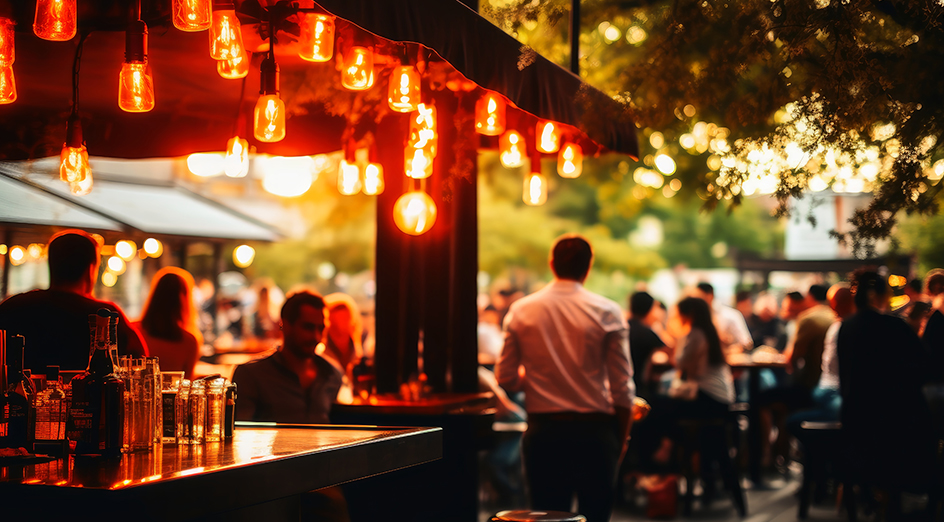Ten world-leading researchers from The University of Western Australia are set to transform Perth bars into learning spaces, hosting free public talks for this year’s Raising the Bar event on Tuesday 24 October.
Join them at one of five CBD bars, enjoy the atmosphere and discover how our researchers are tackling global, national and regional issues to make the world a better place.
This year’s talks range from unlocking the secret to lifelong health in kids, the influence of fake news, diving to the deepest parts of the ocean, open water swimming in extreme seas, what Brazil has to offer beyond soccer stars and supermodels, talking about death, and medicines management in aged care.
Dr Laila Simpson, Director of the Office of Research at UWA, said Raising the Bar helped make higher learning a part of our city’s popular culture.
“By moving beyond traditional lecture settings, we’re engaging the public in meaningful conversations, and raising the bar on discussing complex issues in casual, accessible settings,” Dr Simpson said.
Raising the Bar Perth (https://www.rtbevent.com/rtb-perth-2023) is for one night only and the 2022 talks booked out early, so register now to secure your spot. This is an 18+ event and ID may be required.
Along with this year’s Raising the Bar Perth, discover even more about UWA’s research impact at research.uwa.edu.au/events
The full schedule of talks:
Associate Professor Doina Olaru, Durty Nelly’s, Murray Street, Perth (Shafto Lane)
AI and Us, Building a trustworthy relationship with transport technology. In the landscape of smart cities, where autonomous technologies promise efficiency and convenience, trust is the cornerstone.
Dr Flavia Bellieni Zimmermann, Durty Nelly’s, Murray Street, Perth (Shafto Lane)
Brazil: beyond supermodels and soccer. Can Brazil’s president Luiz Inácio Lula da Silva’s project of “an alternative world order” be successful in the post-Ukraine-Russia geostrategic climate?
Dr Scott Draper, The Globe, Wellington Street
Extreme waves and open water swimming. How WA is leading the world in the development of innovative engineering solutions central to working safely and efficiently in the ocean, even in extremes.
Professor Michael Rosenberg, The Globe, Wellington Street
Active kids: teaching basic movement skills for bright futures. Instilling fundamental movement skills can guide children towards a lifetime of active living, elevating their health and well-being along the way.
Professor Samar Aoun, Market Grounds, Telethon Ave, Perth
Talking about death will not kill you. Why every person, every family and every community need to know what to do when someone is caring, dying or grieving.
Dr Amy Page, Market Grounds, Telethon Ave, Perth
Pharmacists in aged care: unravelling the medicines tangle. The average person in residential aged care takes an average of 10 medicines per day, leading to concerns of potential harm from managing these.

Professor Alan Jamieson, The Shoe Bar, Yagan Square, Perth
Submersible-diving to the deepest places in the oceans. Some often bizarre insights into the day in the life of deep diving subs, and of course the habitats and life that is discovered 11 kms underwater.
Professor Sergey Shabala, The Shoe Bar, Yagan Square, Perth
Calling for the Green Revolution 2.0. Global food security is jeopardised by the increasing severity and frequency of drought and flooding events and soil salinisation that result in over $180Bn in annual losses to the agricultural sector so what are the answers?
Dr Paul Harrigan, Varsity, 94 Aberdeen Street, Northbridge
Fact-checking the truth. Fake news is a bigger issue than even Donald Trump thinks. What does it look like, why and how does it spread, and how can we stop it?
Dr Clas Weber, Varsity, 94 Aberdeen Street, Northbridge
Living in the Cloud: the philosophical prospects of mind-uploading. Mind-uploading is the process of transitioning a person from their biological hardware to an artificial hardware, e.g. by creating a computer simulation of a person’s brain. But could we survive it?








